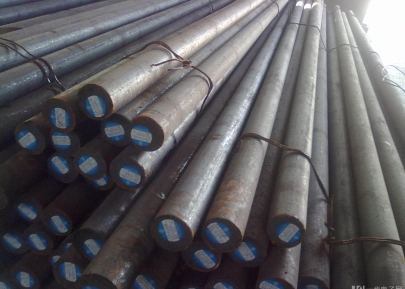Unlocking the Mysteries of Tool Steel Plates: The Unseen Connection with Copper
When diving into the realm of tool steel plates, an unexpected ally often emerges—copper. But what connects these two materials? As I began to explore their synergy, the intricacies started to unfold. This journey isn't just about understanding their individual properties; it's about uncovering the unseen ties that bind them together.
Understanding Tool Steel: A Foundation
Before I could appreciate the relation between tool steel and copper, I needed to grasp what tool steel is. These are high-carbon steels that are specifically designed to withstand high temperatures and maintain their hardness. Primarily used for cutting and shaping tools, tool steel is renowned for its ability to withstand wear and deformation. Notably, the Cooper Menu, a collection of techniques in metalworking, emphasizes the significance of tool steel in achieving precision and durability.
The Role of Copper in Tool Making
You may wonder, how does copper play into this? Upon further investigation, I discovered that copper is often integrated into certain tool steels, enhancing their thermal and electrical conductivity. The addition of copper can improve the toughness of the steel, making it less likely to chip or break under stress. Beyond that, copper’s resistance to corrosion means that tools using this combination tend to have a longer lifespan.
Benefits of Copper in Tool Steel Plates
- Improved thermal conductivity
- Enhanced toughness and durability
- Corrosion resistance
- Better wear resistance
The Process of Cutting Copper Plates
Now, let's pivot to practical applications. If you're like me, you're likely curious about how to cut copper plates effectively. With a myriad of techniques available, here are some popular methods:
| Method | Description | Pros | Cons |
|---|---|---|---|
| Shearing | Using blades to cut copper sheets | Quick and effective | Limited to thinner sheets |
| Laser Cutting | Precision cutting using laser technology | High accuracy | Can be costly |
| Water Jet Cutting | Using a high-pressure stream of water | No heat affects the material | Slower than other methods |
Real-world Applications of Copper and Tool Steel
As I delved deeper, it became evident that the blend of tool steel plates with copper has practical implications across multiple industries. From manufacturing precision instruments to automotive parts, the amalgamation of these metals plays a crucial role.
Environmental Impact and Sustainability
In today’s world, we can't talk about materials without considering their environmental footprint. Metalworking businesses are increasingly seeking ways to minimize waste and utilize recyclable materials. Copper, being a highly recyclable metal, presents an advantage. Together with tool steel, companies can aim for sustainable practices without compromising on quality.
Conclusion: The Synergy of Tool Steel and Copper
In wrapping up my exploration of tool steel plates and their connection to copper, it’s apparent that this bond goes beyond mere functionality. The adaptability, resilience, and unique properties of both elements create a symbiotic relationship that enhances operational efficiency. As those in the field continue to innovate, I find that the mysteries surrounding these materials deepen, reminding us that there’s always more to learn.



